Vietnam silk, brocade exhibition underway in WIPO headquarters
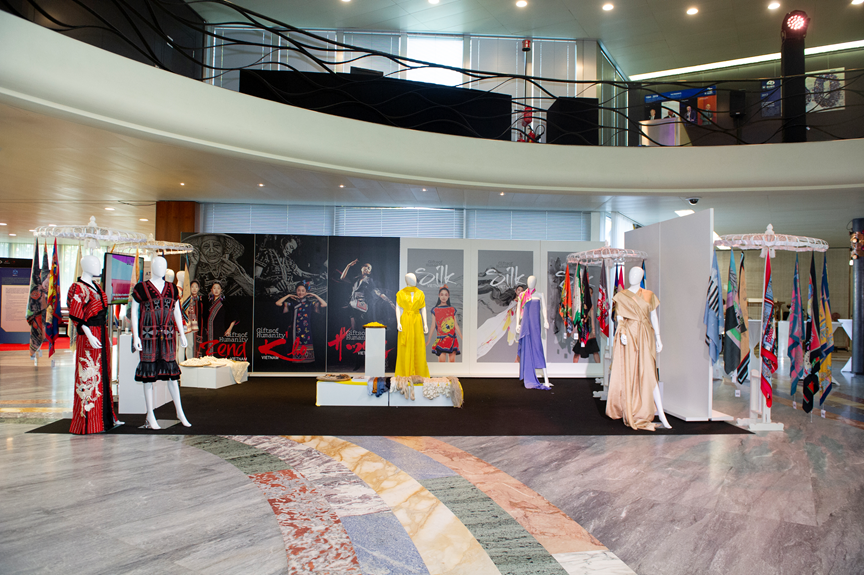 |
The exhibition is co-organised by the Vietnam Permanent Mission to the United Nations, the World Trade Organisation and international organisations in Geneva. Photos: http://www.noip.gov.vn
The exhibition is co-organised by the Vietnam Permanent Mission to the United Nations, the World Trade Organisation and international organisations in Geneva.
It introduces silk products from Bao Loc, the Central Highlands province of Lam Dong – the capital of silk in Vietnam by well-known designer Minh Hanh.
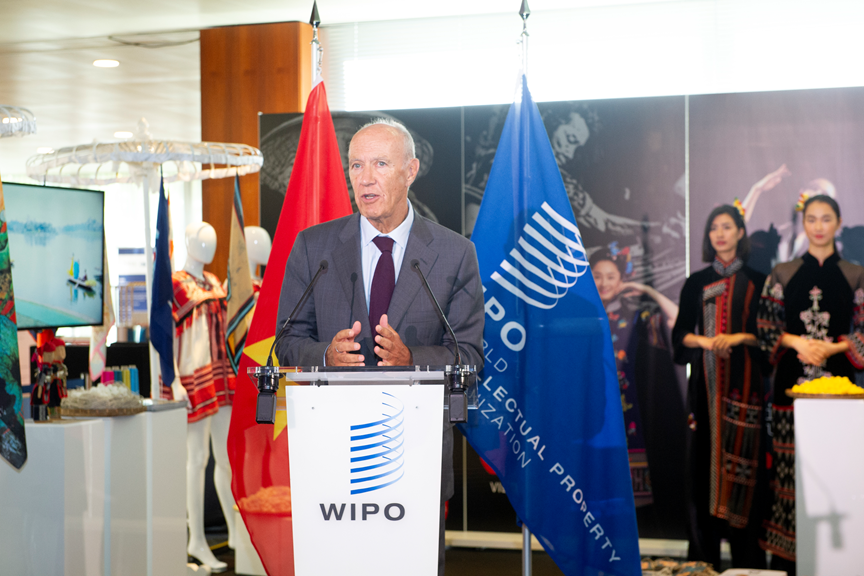 |
Legend has it that silk weaving dated back to the dynasties of Hung Kings, the legendary founders of Vietnam, and through ups and downs of the history, silk weaving has been well preserved at Van Phuc village (Hanoi), Nha Xa village (Ha Nam), Ma Chau village (Quang Nam), Tan Chau village (An Giang), and Bao Loc village (Lam Dong province), among others.
Meanwhile, the art of brocade weaving is a typical cultural feature of ethnic minority groups across the country. Particularly, many ethnic communities have their traditional brocade weaving bestowed with the national intangible cultural heritage status, including Hre in Ba Thanh commune, Quang Ngai province’s Ba To district, Ta Oi in Thua Thien-Hue province’s A Luoi district, and Co Tu in Quang Nam province.
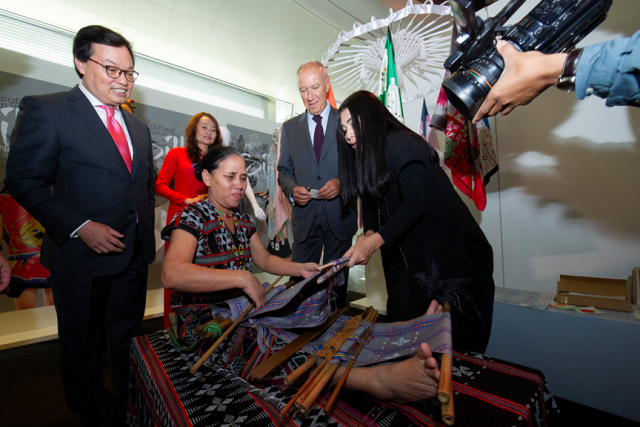 |
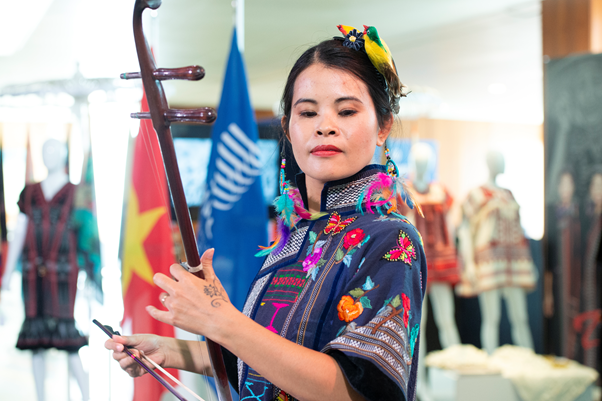 |
Distinct patterns on unique brocade fabric have been favoured by many fashion designers for years. Most recently, renowned designers Minh Hanh introduced a collection of “ao dai” (Vietnamese traditional dress) made of silk, with brocade patterns frequently used by the Vietnamese ethnic people to Russian fashion-lovers, art critics and researchers. The patterns were hand-woven by female members of ethnic groups across the country.
Earlier, the Vietmode fashion show also introduced silk and brocade products in the same place on the occasion of the 74th anniversary of the National Day to the welcome of international friends.
WIPO General Director Francis Gurry also expressed his impression about the show./.
Recommended
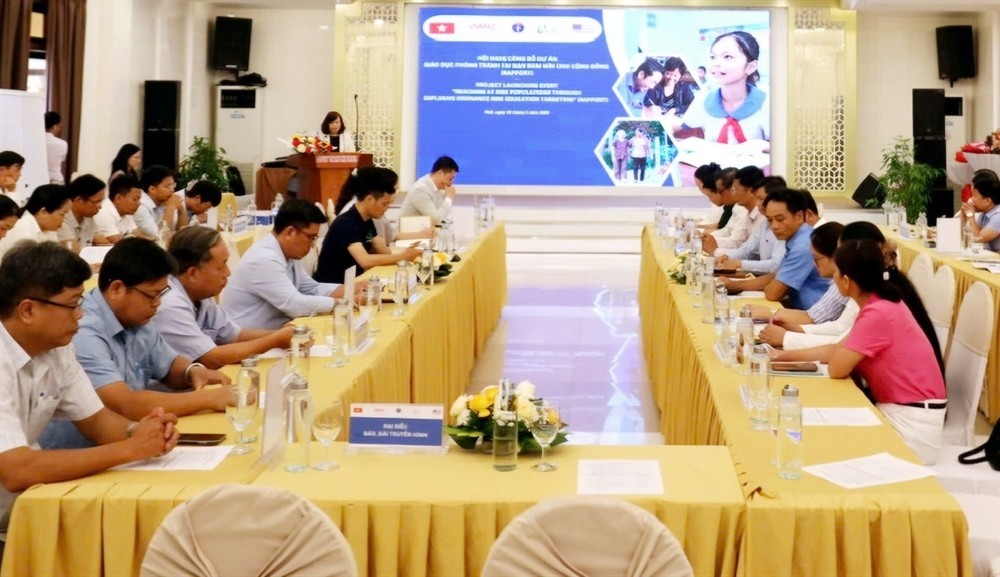 Viet's Home
Viet's Home
Hue City to Raise Awareness on Mine Accident Prevention
 Focus
Focus
Vietnam Leaves Imprints on the World Peacekeeping Map
 Viet's Home
Viet's Home
“Global Vietnamese Singing 2025” - Connecting Hearts Longing for Homeland
 Viet's Home
Viet's Home
Vietnam’s People's Public Security Force Actively Contributes to UN Peacekeeping Operations
Popular article
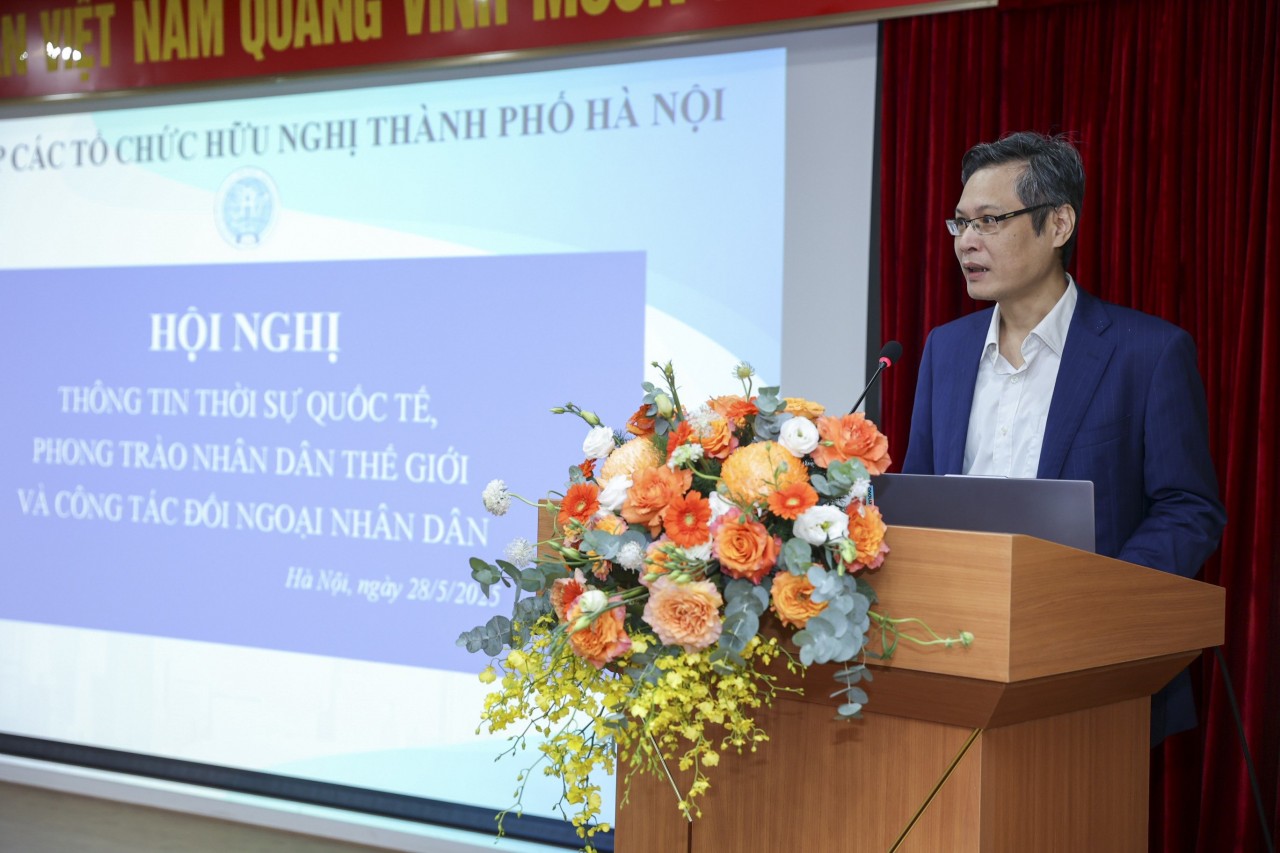 Viet's Home
Viet's Home
HAUFO Enhances Competence of People-to-People Diplomacy Personnel
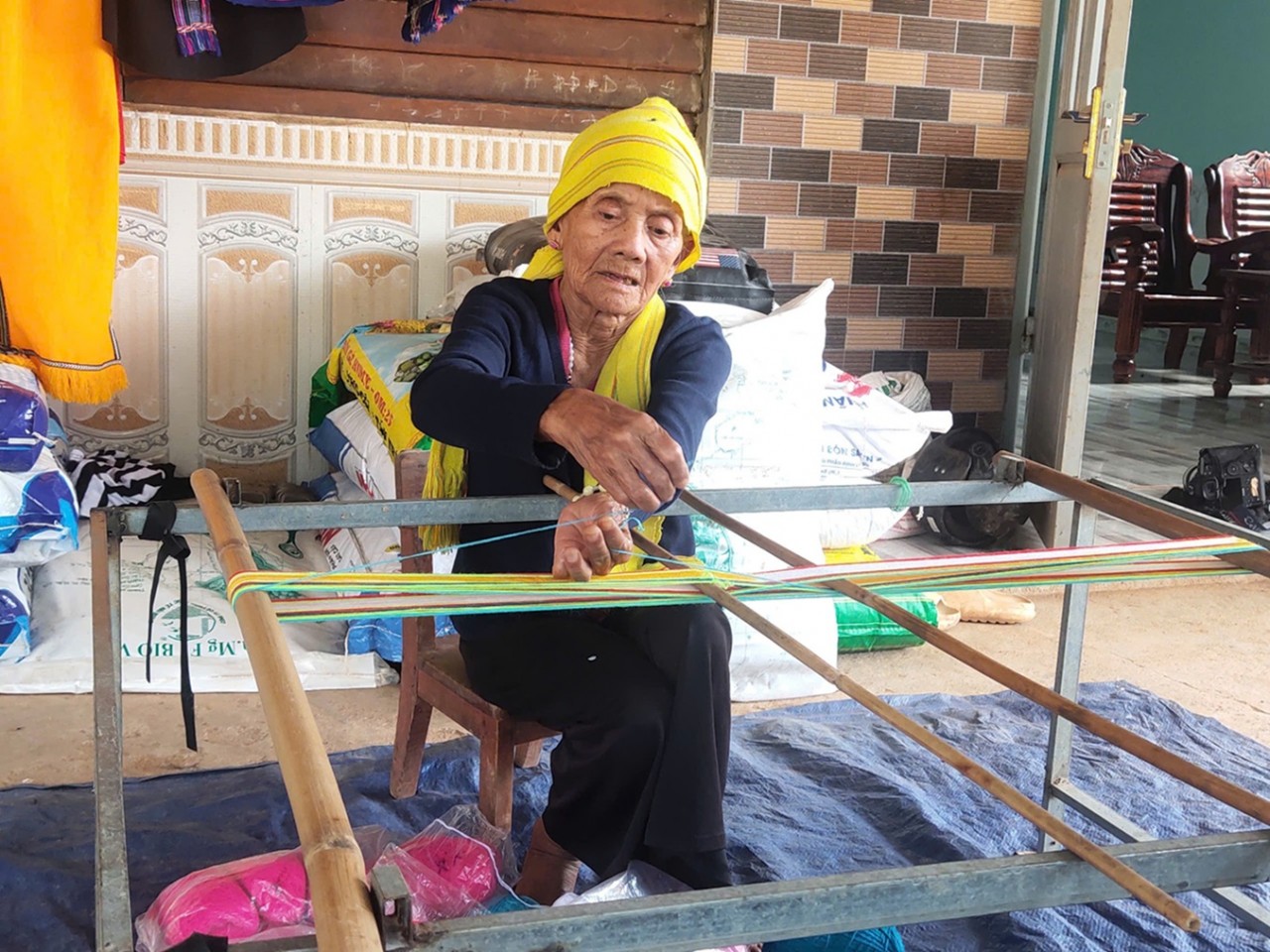 Viet's Home
Viet's Home
Hands that Reserve Da Long Brocade Craft
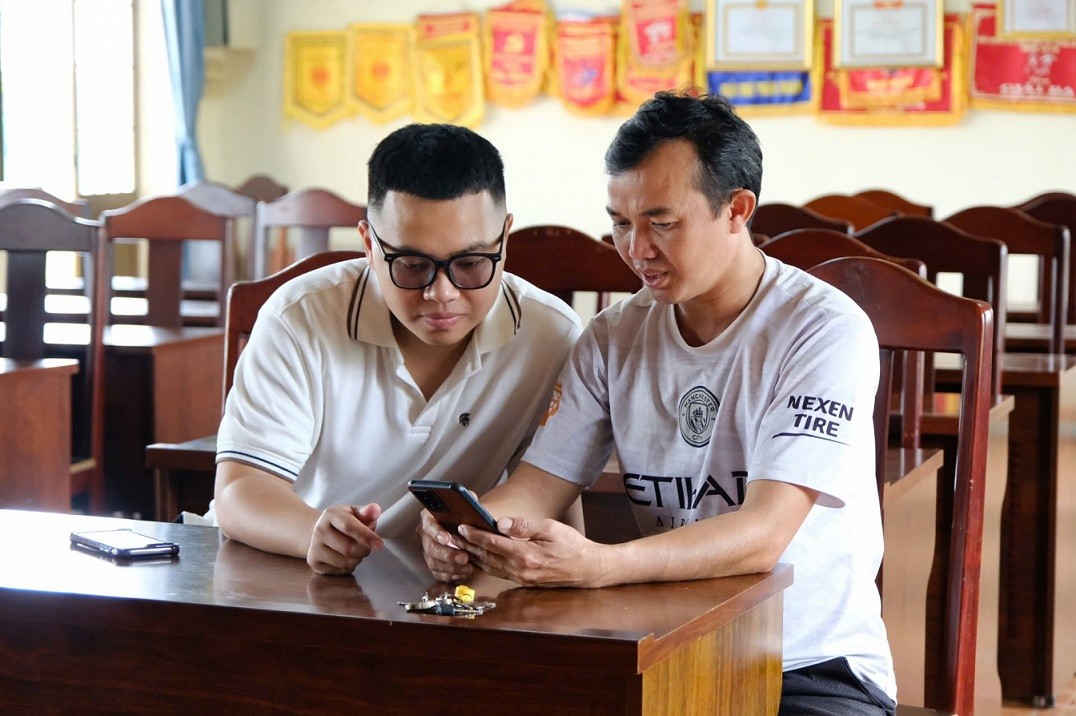 Viet's Home
Viet's Home
Da Rsal – How Digital Transformation Reshape a Poor Commune
 Viet's Home
Viet's Home



